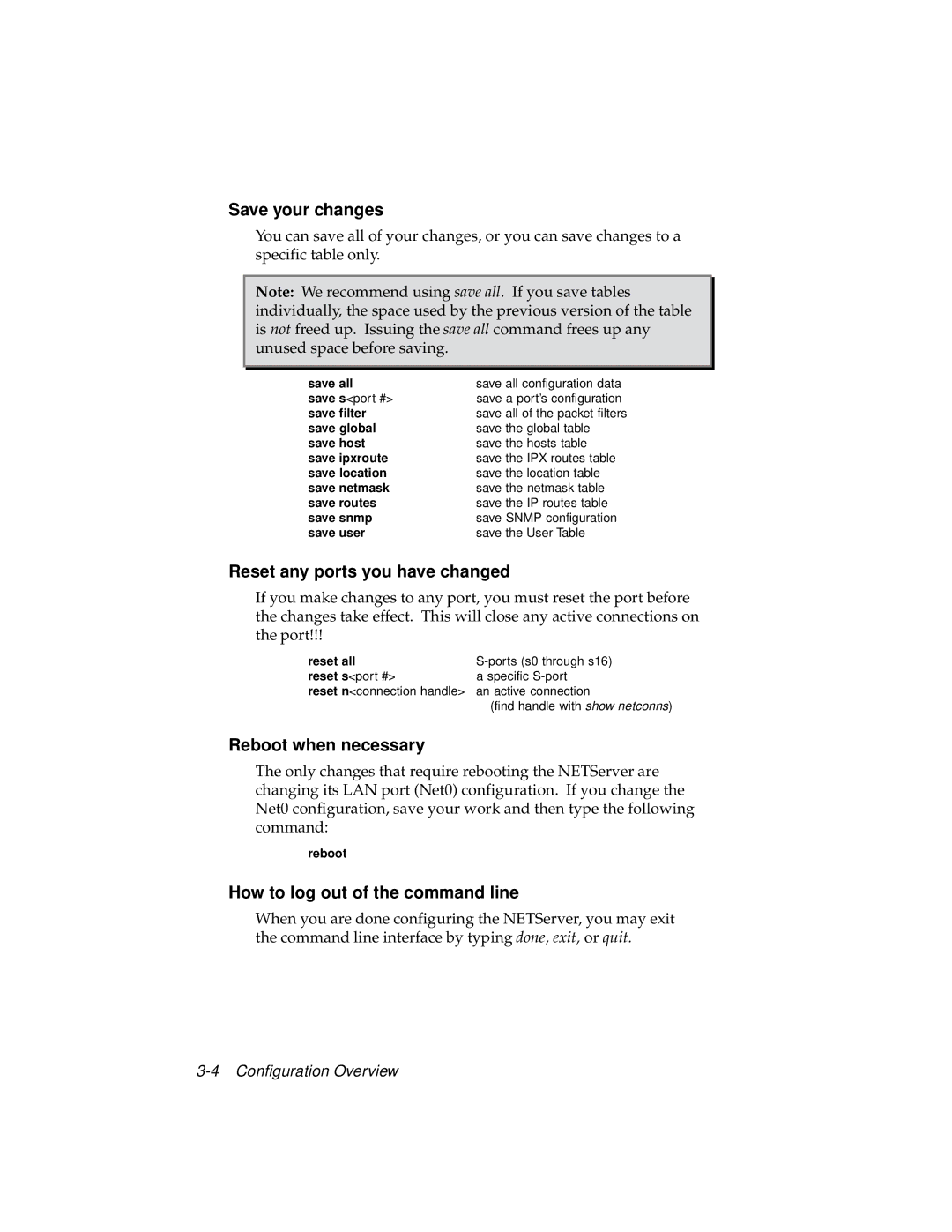
Save your changes
You can save all of your changes, or you can save changes to a specific table only.
Note: We recommend using save all. If you save tables individually, the space used by the previous version of the table is not freed up. Issuing the save all command frees up any unused space before saving.
save all | save all configuration data |
save s<port #> | save a port’s configuration |
save filter | save all of the packet filters |
save global | save the global table |
save host | save the hosts table |
save ipxroute | save the IPX routes table |
save location | save the location table |
save netmask | save the netmask table |
save routes | save the IP routes table |
save snmp | save SNMP configuration |
save user | save the User Table |
Reset any ports you have changed
If you make changes to any port, you must reset the port before the changes take effect. This will close any active connections on the port!!!
reset all | |
reset s<port #> | a specific |
reset n<connection handle> | an active connection |
| (find handle with show netconns) |
Reboot when necessary
The only changes that require rebooting the NETServer are changing its LAN port (Net0) configuration. If you change the Net0 configuration, save your work and then type the following command:
reboot
How to log out of the command line
When you are done configuring the NETServer, you may exit the command line interface by typing done, exit, or quit.
